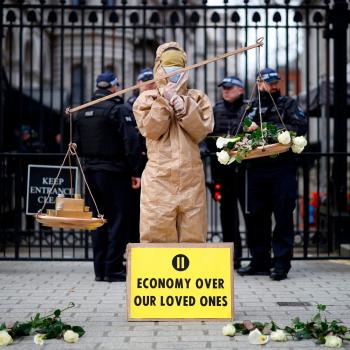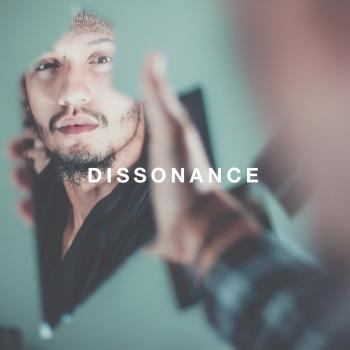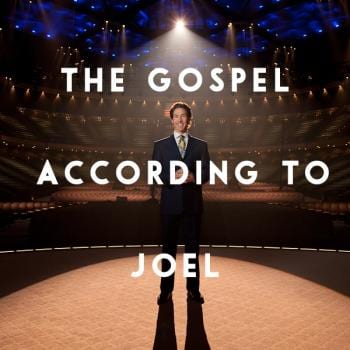Originally, I started off this post by rhetorically asking if you knew the difference between a married person’s love life and a non-married person’s love life[1]?
I followed this by answering, “The difference is that when unmarried persons break up it won’t cost them $15,000, or the equivalent to what the married person paid for their wedding…”
Admittedly, as a single person starting off a post on relationships, this came across a tad bitter.
The longer I live, the more I realize, sadly, how much of what I’ve chosen was done out of insecurity, yet so perfectly hidden under the guise of this smug type of certainty. Certainty, it was a failed attempt to convince myself that I have made all the right choices and the best possible decisions with my life, thus far. To me, this is what makes life utterly terrifying, yet simultaneously exhilarating.
Life, it’s this “unrepeatable experiment with no control.”
Luckily I’ve gotten to a point, or temporary season, in my life in which I’m no longer jealous, or for this matter, envious of my married friends, who’ve found “the One.” What, if anything, I am jealous or envious of are those who have found freedom and what truly works for them, single or not.
I think that if we’re all honest, again, married or not, it’s tough to look at someone else’s life that possesses the choices you didn’t make. Because life is, in an oxymoronic and self-contradicting manner, both transient and intransient; it’s this subjectively-abstract-incomprehensible-thing-of-a-mess; our actions are irrevocably unchangeable, and our existence is ever fleeting. Life, it’s exhausting to say the least.
“For whatever we do, even whatever we do not do prevents us from doing it’s opposite. Acts demolish their alternatives, that is the paradox.” – James Salter
Is marrying her/him the best possible choice, or is breaking up going to give you better life results? Is a failed marriage better than living a single life, or is risking the possibility of having a failed marriage better than choosing a single life? The answer, I think, to all of these is “yes, but…” I say this because I think that we’ve failed to consider the innumerable other options that exist in regards to non-platonic relations, particularly, serial monogamy [2].
But, here’s the thing: we find ourselves in this anomalous point of history in which we won’t be murdered for disagreeing with Christianity and inconsequence this also means not being [as] socially ostracized or burned at the stake for not getting married. For jaded out singles, such as myself, even better news is that we are greatly out numbering those that are currently married. It’s no longer a matter of either a) getting married or b) living a life of loneliness. Essentially, what I’m saying is that intimately deep and profound relationships can in fact be commonly be had outside the confines of marital relationships, romantic or not.
6 TIPS ON HOW MARRIED CHRISTIANS CAN EMBRACE SINGLE ADULTS
Being brainwashed by Disney – not hatin’ on Disney, still watching Lion King on repeat – I never even considered the idea of other romantically inclined relational options that didn’t include a legal marriage license, until I began hearing stories from friends, who were married, yet felt so trapped within a seemingly inescapable life long choice.
As the amount of infidelity is rising and the population of the lower class is increasing I’m suggesting it’s time we start considering other options. Because, even if the divorce rate is no longer 50%, I’m not so sure the rate of marital happiness is getting any higher. It’s counterintuitive to follow an outdated system in order to avoid stigmatization when in the long run you encounter the traumatic after effects of, what was supposed to be, a life long union.
Don’t get me wrong, we all intend to be monogamous but, when honest, none of us actually are. The intent is noble but the outcome has been inimical. <— that’s a word, right?
If anything, my being “jaded,” is not about my still being unwed, it’s that regardless of knowing all the above, one still remains pushing outdated, illogical slew of cultural expectations, mislabeled as a sacrosanct set morals (e.g. the mere thought of sex outside the confines of marriage is sin). It’s exhausting to constantly feel smited by God every time you experience sexual attraction, so as a result, getting married is the answer. In a much less jadedly harsh way of putting it, divorce is costly and marriage is more than risky – financially, it can empty your bank account; emotionally, it can wreak havoc on your psyche; culturally and socially, it can stigmatize and isolate. I think this is why divorce is listed within the top three most stressful situations a person can endure; it literally ruins, destroys, and ends lives.
“Today’s generations are looking (exhaustively) for soul mates, whether we decide to hit the altar or not, and we have more opportunities than ever to find them,” – Aziz Ansari
To say the least, relationships are complicated. Relationships to me are a lot like math in the sense that ther is this intrinsic simplicity (addition) to extremely complexity (linear algebra), and in order to understand the complex, you need to have a basic understanding of the simple. And, not to mention, if you mess one thing up, it can take large and seemingly irreparable damage.
All the while, each relationship has it’s own various layers made up of innumerable amounts of factors that in and of themselves have an infinite amount of interpretations, remembering that each one of these interpretations is subject to it’s given and ever-changing and uncontrollable environment. Relationships, and I guess math too, goes from being superficially basic to subjectively abstract (i.e. I have no idea what’s going on). Meaning, you could make the best possible decision(s), but within an uncontrollable environment, shit could still go very wrong and it absolutely not be your fault; we do what we can, and sometimes what we do is not enough.
Hence, Serial Monogamy. What if you went into your romantic relationships with more of an open mind, taking into consideration that your relationship does not have to look like everyone else’s? What if doing this, it’s not “sinful” or wrong, it’s simply an unavoidably painful aspect of life. It’s tempting to look to our left or right comparing our situation, life, and/or relationship to others, but I agree with Tim Kreider in that “other people’s lives are not these “cautionary fables or repudiations of our own, to covet or denigrate,” he goes on suggesting “[that what if we instead we] saw them for what they are: other people’s lives, island universes, unknowable [3].”
What I’m saying, essentially, is that I think we should redefine “happily ever after.” Getting married, not getting married, embracing serial monogamy or not embracing serial monogamy, none of these are the point – The point is that each individual circumstance is a fingerprint in and of itself, and therefore uniquely set apart from every one else’s being given it’s own set of rules and various unknown resolutions. It makes very little sense to live your life using someone else’s solutions.
Of course, this is far more insolubly complex than a blog post, or any other relational self-help book, tape, or writing could fully address and do justice. So, what do I know, in the words of my grandfather, “We’re all going through life blindly trying to make the best out of the little we have and know.” I’m only suggesting that we entertain the thought of no longer white knuckling a relationship while bemoaning the misery it’s evolved into, or the unexpected trajectory it’s taken. And that instead we let go of our outdated ideal and our picture perfect disnified expectation(s) of “happily ever-after,” and simply allowed ourselves room for error by living out what would best fit our given, and unpredictably unique, life circumstances.
[2] (As I typed out the words, “serial monogamy” I could already feel the Christian readers’ cringing at the mere suggestion of this idea because they, like me, were traumatized by the belief that sex outside of the confines of marriage, and/or with more than one person, is God damnable sin that will lead to an afterlife of inescapable hell fire. All while a majority of us cringing, have or eventually will engage in a succession of relationships that were non-platonic and inevitably came to an end [i.e. participated in serial monogamy]).
[3] Tim Kreider, We Learn Nothing.

















